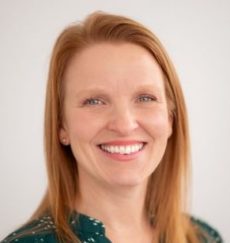
Put it on the calendar.
During the final quarter of 2021, a massive deal is expected to close and, with it, turn Diversicare Healthcare Services’ 61 skilled nursing facilities (and the rest of its holdings) over to a new owner. While it’s expected that the nursing homes will continue to operate, it likely will become that much more difficult to see what’s happening inside of them.
That’s not because COVID-19 is keeping out visitors. It’s because the pandemic is hastening the speed at which the industry invites takeovers from well-heeled and often well-cloaked private investors.
Diversicare will shift from being a publicly traded company to being an asset of Ephram “Mordy” Lahasky, an investor and operator whose complex ownership web already weaves together at least 100 nursing homes.
It’s part of a trend that some see as troubling: Large numbers of once publicly traded, publicly accountable organizations are moving into tighter ownership circles, draping their business practices in relative secrecy as federal regulators hash out how best to deal with private equity’s rise in the industry.
But it’s not just public behemoths — pressured as they are by their own shareholders — that are falling to sky-high offers. Nonprofit and mission-based organizations are also increasingly selling out in this COVID/post-COVID/re-COVID market.
It’s not a new trend by any means.
Ziegler earlier this year reported more than half of all provider sponsorship transactions from 2010 to 2020 were senior housing and care organizations switching from not-for-profit to for-profit status.
But buyers impatient that the public health emergency hasn’t yet drawn to a close appear increasingly ready to take on risk despite the pandemic, offering up values that far exceed what operators might have expected in better days.
In the case of Diversicare, Lahasky’s DAC Acquisition will buy all the operators’ outstanding shares of common stock at $10.10 each — or a premium of approximately 256% compared to the $2.84 closing price on Aug. 19, the last trading day before DAC announced its proposal.
With offers like that, who wouldn’t want a piece? Especially given uncertainties about an evaporating workforce and its impact on admissions, remaining threats to resident health and a lack of long-term government funding that recognizes the ongoing crisis.
For distressed operators short on cash, the threat of being poached will become even more real.
In New Jersey, at least three facilities in the state have closed since the start of the pandemic, citing operational and financial hardships. Last week, hospital system Hackensack Meridian Health confirmed it is in talks to sell its 13 nursing and rehabilitation facilities.
“In line with industry trends and best practices, we have decided to review options to sell our business to a best-in-class service provider with an expertise in the long-term care business,” a spokeswoman told local media.
New Jersey in recent years has fortified its Health Department’s oversight of nursing home sales, meaning officials will have at least a peek into ownership details and relationships before any deal is finalized.
But Congress, where some members have been on a year-long campaign to limit private equity’s influence in healthcare, has done little to act on its distrust of related entities and shadowy ownership structures.
As the buyouts continue, it’s fairly obvious that the feds have one key resource that could keep more PE investors on the sidelines: Paying existing providers more to deliver care and lessen their daily operational burdens.
Funding the nation’s nursing homes at a level reflective of the work they do and the crisis they’ve been stuck in since March 2020 would certainly make it a little easier to resist all those flashy offers yet to come.
Kimberly Marselas is senior editor of McKnight’s Long-Term Care News.
Opinions expressed in McKnight’s Long-Term Care News columns are not necessarily those of McKnight’s.




